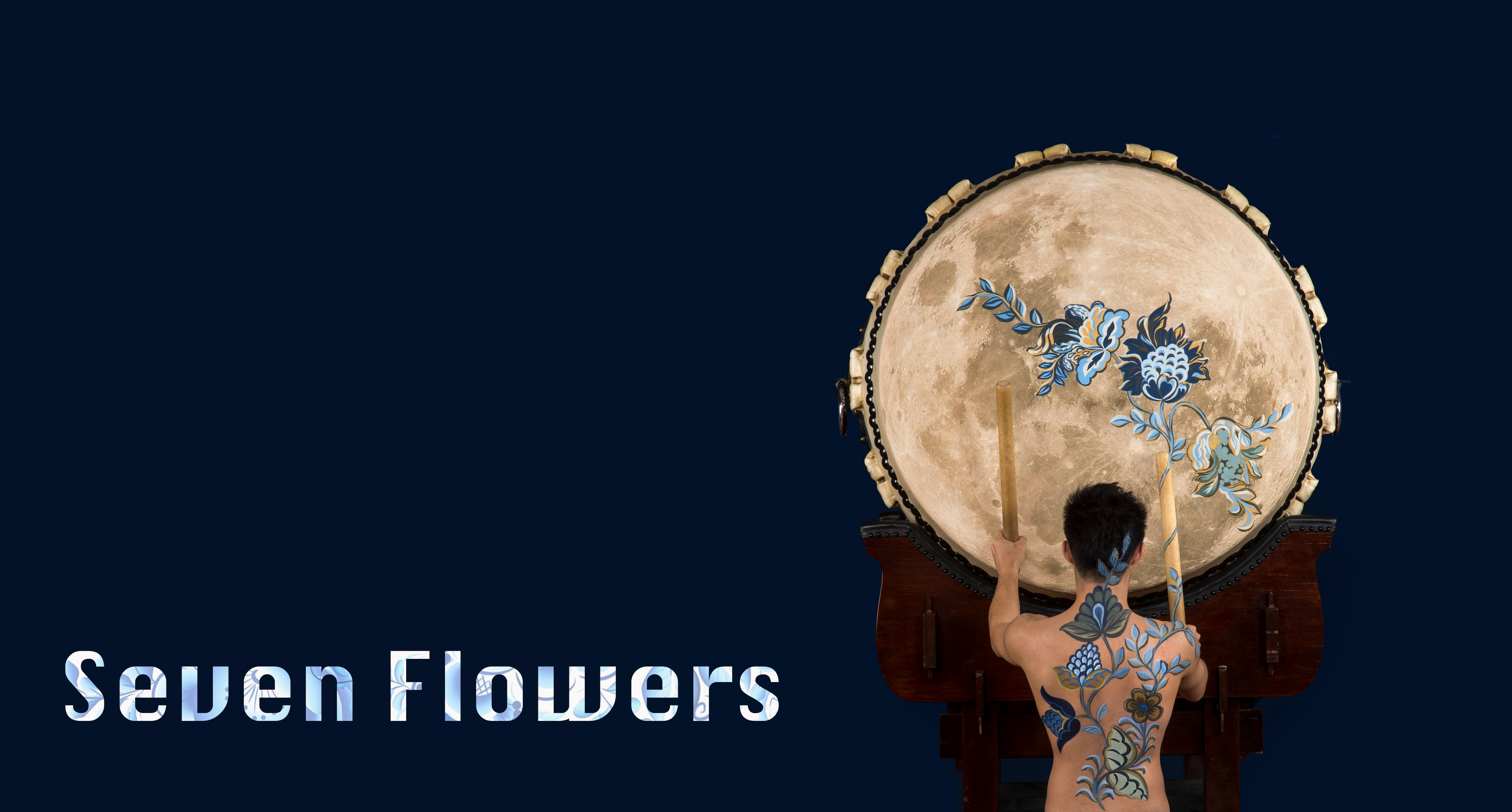Earlier this year, I read William Scott Wilson’s translation of Noh playwright and theoretician Zeami’s 15th Century, once-secret treatise »Fushikaden«. I have long been fascinated with some of the concepts of Noh – many have informed my approach to performance, playing technique and aesthetics – and so, after reading the book, its first chapter gave me the framework for our production.
Speaking to the seven ‘ages’ of the artist, “Concerning Practice and Age” is a mixture of practical advice (“... he should use training methods for his voice appropriate to evening and morning practices”), observations (“Though he may be a child with a child’s voice, if he is skilful, what could go awry?”), warnings (“... the actor should be all the more cautious. This is the point where he should reflect deeply on how he has reached this point and the means by which he will carry on.”), and poetry (“the tree may be old and its branches and leaves few, yet the flowers will remain without falling”). Zeami gives fascinating insights into an artist’s life and practice, and although »Fushikaden« was written between 1400-1418, his ideas transcend time, place and culture. It is deeply humanistic and spoke to me very clearly.
It occurred to me that within Taikoz and our close associates, we roughly cover Zeami's ‘Seven Flowers’:
First Flower: Inborn Presence (Age 7)
Second Flower: Flower Of The Moment (From the age of 12 or 13)
Third Flower: Flower Lost (From the age of 17 or 18)
Fourth Flower: Two Blessings (From the age of 24 or 25)
Fifth Flower: Reflection (From the age of 34 or 35)
Sixth Flower: The True Flower (From the age of 44 or 45)
Seventh Flower: “The place where nothing is done” (Beyond the age of 50)
As you can imagine, it was an inviting concept! In our »Seven Flowers«, each Flower will feature soloists of each age group in works that say something about their artistic development, their characters, their loves, enthusiasms, thoughts and ideas.
Subscribe
Click to Subscribe
Keep up to date with all Taikoz news by subscribing to our newsletter
What's On
Earlier this year, I read William Scott Wilson’s translation of Noh playwright and theoretician Zeami’s 15th Century, once-secret treatise »Fushikaden«. I have long been fascinated with some of the concepts of Noh – many have informed my approach to performance, playing technique and aesthetics – and so, after reading the book, its first chapter gave me the framework for our production.
Speaking to the seven ‘ages’ of the artist, “Concerning Practice and Age” is a mixture of practical advice (“... he should use training methods for his voice appropriate to evening and morning practices”), observations (“Though he may be a child with a child’s voice, if he is skilful, what could go awry?”), warnings (“... the actor should be all the more cautious. This is the point where he should reflect deeply on how he has reached this point and the means by which he will carry on.”), and poetry (“the tree may be old and its branches and leaves few, yet the flowers will remain without falling”). Zeami gives fascinating insights into an artist’s life and practice, and although »Fushikaden« was written between 1400-1418, his ideas transcend time, place and culture. It is deeply humanistic and spoke to me very clearly.
It occurred to me that within Taikoz and our close associates, we roughly cover Zeami's ‘Seven Flowers’:
First Flower: Inborn Presence (Age 7)
Second Flower: Flower Of The Moment (From the age of 12 or 13)
Third Flower: Flower Lost (From the age of 17 or 18)
Fourth Flower: Two Blessings (From the age of 24 or 25)
Fifth Flower: Reflection (From the age of 34 or 35)
Sixth Flower: The True Flower (From the age of 44 or 45)
Seventh Flower: “The place where nothing is done” (Beyond the age of 50)
As you can imagine, it was an inviting concept! In our »Seven Flowers«, each Flower will feature soloists of each age group in works that say something about their artistic development, their characters, their loves, enthusiasms, thoughts and ideas.

